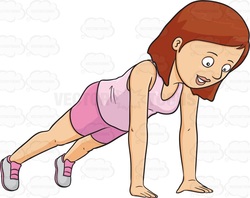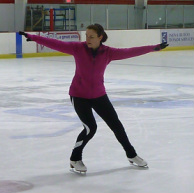 Two weeks into physical therapy and I am feeling OK. Well, the shoulder is supposedly making progress. Not that the pain is gone completely. I thought I would be able to ride it all out, maybe without having to use a lot of my tools to get through it. But the elation of having my physical therapist, Drew, tell me it is treatable and that it will be feeling better over time, has given way to frustration when progress I thought I was making seems to stall or, worse, take a step backward. I have been dutifully following Drew’s instructions and working on posture, doing the exercises on the printout they gave me on Day One. But at the end of each day I become impatient. I get that if I was not following orders, progress would be elusive. But I am doing all I can, and it’s not happening fast enough for my tastes. Impatience, I see it often in my clients. It’s one thing to tell them, “It will take time.” But to tell myself, quite another story. I am grateful to have a physical therapist that is patient and doesn’t mind answering question after question. Knowledge is power, and I want to be powerful in this battle with my pain. Drew has a great sense of humor, and I find that laughter is indeed pretty good medicine. I think he uses the humor as a way to distract me from the havoc he is wreaking on my shoulder. Nice try! Not sure why the cure is sometimes worse than the disease when it comes to physical therapy. But I have been assured everything they are doing and having me do is for the greater good. I realized that beyond “no more pain,” I didn’t really have any particular goals set for my rehab and recovery. This surely precipitated my lack of motivation and feeling that I am a victim of “two steps forward, three steps back.” I asked Drew what our goals are, beyond eliminating the pain. He hesitated a bit, admitting that for my particular case there really is no quantifiable goal beyond the lack of pain. I have full range of motion, albeit painful at certain angles. So that is where we decided to start. I need to be able to quantify my progress. Drew has made note of what angles of the range of motion cause pain. Also, certain activities such as holding my arms out to the side when skating, are painful 100% of the time. The idea is that I will keep track of angles and timing and hopefully start to see improvement that can be quantified. Eventually the pain will be less at those same angles. Eventually pain when skating will be reduced to 90%, 75%, finally 0% of the 90 minutes I skate in a session. While not terribly scientific, it did satisfy my need for goals to shoot for. I also remarked that I have been less confident in the strength of that arm. I fear if I put all my weight on it (to catch myself in a potential fall, for example), it would snap. Drew said considering I don’t have a serious tear, I really don’t need to worry. But worry I do. We agreed that push-ups could now be added to the goals list. I offered push-ups with a clap in between or even one-arm push-ups if we really want a challenge. (See humor, paragraph 3) I am incorporating some imagery into my home exercise routine, to help me get past the fear. I visualize myself skating without pain. I see myself doing push-ups without fear. I imagine the muscles of the rotator cuff getting stronger, smoothing out and pushing out the pain. There is a pain relief cream called Blue Emu, which I learned about from my father, a massage therapist. It really is blue. When I first used it, my son was intrigued by the name of it. He helped me form a visual of how it works. “There is an emu in it who pecks at the pain.” Love it. More on imagery and “pecking at the pain” next time.
1 Comment
|
"Even if you are on the right track, you will get run over if you just sit there." Personal Best SportsThe sports world is filled with stories of perseverance, failure and success, personal struggles and public triumph. Each story provides insight into the mental side of sport and activity. Archives
March 2016
Categories
All
|

